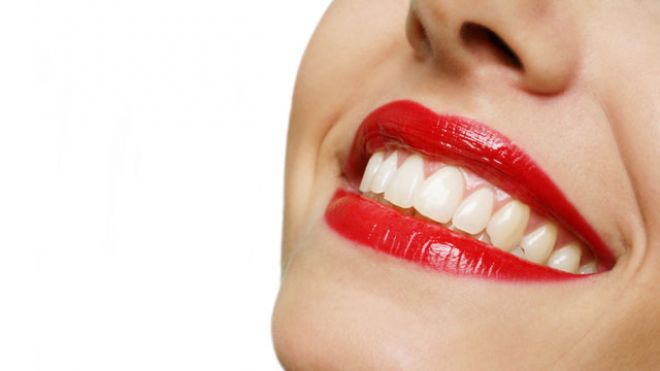
Renewing your energy is possible, once you learn to combat common causes of fatigue. Culprit: A Vitamin or Mineral Deficiency Having low levels of iron or vitamin D or B12 can make you feel tired, anxious, and weak, Irene Park, a nurse practitioner in New York City, said. Many experts believe that a significant percentage of the U.S. population is deficient in vitamin D. Related: How to Cheer Yourself Up “And lower levels of vitamin D can cause muscle weakness and pain,” Keenan said. Also, if you’re a woman of reproductive age, you’re statistically at greater risk for iron-deficiency anemia. The only way to tell if you’re low in any vitamin or mineral is to see your doctor for a blood test. Meanwhile, to bolster your body’s stores, consider taking a multivitamin with at least 100 percent of your daily requirement of vitamins and minerals. (Experts generally advise that healthy adults also supplement with 1,000 to 2,000 international units of vitamin D daily.) Culprit: The Blues Research has indicated that people with depression may be four times more likely than the nondepressed to experience unexplained fatigue.  Related: 25 Easy Instant Energy Boosters Aerobic exercise—specifically, 30 minutes or more three to five days a week—is effective at treating mild to moderate depression, and may minimize the sleepiness associated with it. If that doesn’t help, however, speak to your doctor, who may recommend talk therapy or a mood-boosting medication, like a selective serotonin re-uptake inhibitor (SSRI).  If your depression and related fatigue seem to strike more frequently in winter, you could have seasonal affective disorder (SAD). Treatment for SAD may include using a special light box, Marla Wald, a psychiatrist at Duke University Medical Center, in Durham, North Carolina, said. But venturing outside for about 20 minutes a day can provide similar benefits, she said. Culprit: Your Adrenal Glands They’re responsible for secreting the fight-or-flight hormones adrenaline and cortisol, which surge as a response to stress—whether the prehistoric-days type, like being chased by a tiger, or the modern-day version, like financial worries or your mother-in-law.  Related: 10 Tips for Becoming a Morning Person But when you’re feeling stressed all the time, those glands may become overworked and can tire out—a condition commonly called adrenal fatigue, Keenan said. The inability to secrete enough cortisol during the day can cause energy dips, then spikes at night that can interfere with restful sleep. To give your adrenal glands a chance to recharge, Keenan recommends meditation, which she thinks of as parking the body in neutral.  “Meditation has the effect of slowing down the production of cortisol for a while,” she said.  Try sitting quietly and clearing your mind for at least five minutes a day.  Vitamins B5 and C have also been shown to support adrenal function, said Jacob Teitelbaum, the Kona, Hawaii–based medical director of the Fibromyalgia & Fatigue Centers and the author of “From Fatigued to Fantastic!” He recommends getting at least 50 milligrams of B5 and 500 milligrams of C daily. Other stress-reduction techniques work well, too.  “Exercise is particularly effective,” Park said. Culprit: What You Drink and Eat Caffeine can be a lifesaver on sleepy mornings, but too much may be problematic, since it can act as a diuretic.  “And dehydration can cause fatigue,” Bonnie Taub-Dix, a registered dietitian in New York City, said. Aim for at least eight cups of fluids a day, more if you eat a lot of high-fiber foods, which absorb water. Food sensitivities and their side effects can also bring on fatigue.  “Lactose intolerance, for example, can cause diarrhea, which can result in dehydration,” Taub-Dix said.  Teitelbaum notes that a diet high in processed foods can aggravate food sensitivities and lead to fatigue (one such sensitivity is the inability to metabolize gluten, which is found in many processed foods). An internist or a registered dietitian can determine if you have a food intolerance. Culprit: A Stealth Sickness When nothing else seems to be at the root of your fatigue, consider seeing a doctor. Fibromyalgia and chronic fatigue syndrome commonly cause intense tiredness, in addition to poor sleep quality, brain fog, and/or muscle pain. (Hypothyroidism, an underactive thyroid, often occurs with the disorders.) Much is not understood about fibromyalgia and chronic fatigue syndrome, but doctors estimate that up to 14 million Americans suffer from one or the other. And women are more likely than men to experience them.  “There’s usually a genetic predisposition,” Kent Holtorf, a Los Angeles thyroidologist and the founder of the National Academy of Hypothyroidism, said. Some doctors surmise that fibromyalgia is a result of abnormalities in the central nervous system and that chronic fatigue syndrome is linked to infection. Other experts think both conditions are a result of a dysfunction of the hypothalamus and the pituitary and adrenal glands. Most standard blood tests fail to identify the disorders, so the conditions are typically diagnosed through a physical exam and a detailed medical history. Standard treatment may include an SSRI or a muscle relaxant. Another disorder that may be to blame: obstructive sleep apnea. A person who suffers from it experiences repeated pauses in her breathing while sleeping, often because she has narrow airways in her nose, mouth, or throat (some telltale clues: loud snoring or gasping for breath while sleeping). If your doctor suspects sleep apnea, he will send you to a sleep clinic for an overnight evaluation.  Treatment may be as simple as changing your sleeping position or wearing an oral appliance, or as complex as sleeping in a mask attached to a C-PAP (continuous positive airway pressure) machine. In extreme cases, surgery may be necessary. Click for more from Real Simple. source : http://www.foxnews.com/health/2013/06/12/are-tired-all-time/

